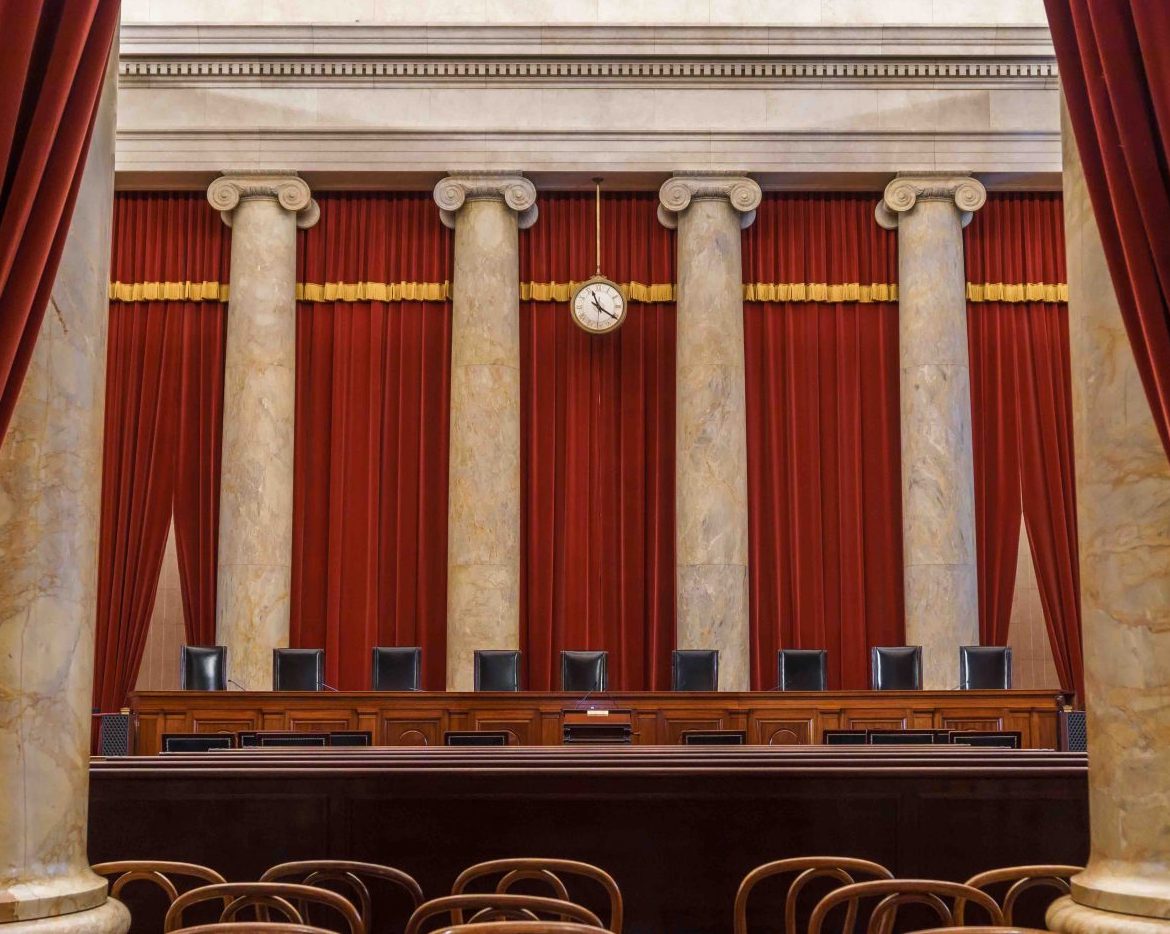Supreme Court refuses to reinstate Missouri Second Amendment law


The Supreme Court on Friday refused a request by Missouri to reinstate a state law that bars police officers from enforcing federal restrictions on the sale and ownership of firearms that the state believes violate the Second Amendment. A federal judge ruled earlier this year that the state law is itself unconstitutional and blocked the state from enforcing the law. In an unsigned order on Friday, the justices left that decision in place while the state’s appeal continues in the lower courts.
Justice Clarence Thomas indicated that he would have granted Missouri’s request, while two of his colleagues – Justices Samuel Alito and Neil Gorsuch – wrote separately to clarify their understanding of the scope of the lower court’s order.
Missouri Gov. Mike Parson signed the law at the center of the case, known as the Second Amendment Preservation Act, in 2021. The law prohibits local law enforcement officials from enforcing federal firearms laws that the state believes are unconstitutional, including federal laws that govern the registration of some firearms, impose limits on who can sell firearms, and impose some limits on who can own a gun – for example, the blanket ban on possession of a gun by individuals convicted of a felony. The law imposes fines of $50,000 for violations of that ban.
In Feb. 2022, the federal government sued Missouri, seeking to block the state from enforcing the law. Brian Boynton, the head of the Justice Department’s Civil Division, said in a statement that states “cannot simply declare federal laws invalid.” The Missouri law, Boynton indicated, “makes federal firearms laws difficult and strains the important law enforcement partnerships that help keep violent criminals off the street.”
In March of this year, U.S. District Judge Brian Wimes ruled that the law is unconstitutional because it violates the Constitution’s supremacy clause, which makes clear that state laws cannot invalidate federal laws, and that federal laws trump any inconsistent state laws. Wimes barred Missouri from enforcing the law.
On Sept. 29, the U.S. Court of Appeals for the 8th Circuit declined to put Wimes’s order on hold, preventing Missouri from enforcing the law while it appealed his decision.
Missouri came to the Supreme Court a few days later, asking the justices to intervene. Missouri Solicitor General Joshua Divine depicted the dispute as a disagreement “about the correct interpretation of the Second Amendment.” Because the Missouri legislature believes that some federal laws regulating firearms are unconstitutional, he explained, it barred state and local law enforcement agencies from helping federal officials to enforce those laws.
The state argued that the district court’s order striking down the law is flawed in two different ways. First, Divine contended, as the Supreme Court made clear in its 2021 decision in Whole Woman’s Health v. Jackson, the challenge to the Texas law that bans almost all abortions in the state, courts can bar specific officials named as defendants from acting, but they cannot block the laws at the heart of the challenges. Second, Divine continued, the United States does not have a legal right to sue, known as standing, because it has not really been injured by the state’s decision not to provide any resources to enforce federal laws.
The government’s theory, Divine wrote, would sweep broadly. “If the United States may sue any State or state official who expresses a contested view of the Constitution, then law professors, state lawyers, and all government officials have cause for serious concern.”
U.S. Solicitor General Elizabeth Prelogar urged the court to deny the state’s request, calling the law “an obviously unconstitutional attempt to nullify federal law.” The state legislature, Prelogar stressed, “is free to express its opinions about the Second Amendment, and it is also free to prohibit state and local officials from assisting in the enforcement of federal law.” But what the state cannot do, Prelogar continued, is “purport to nullify federal statutes; to direct state officials and courts to treat those statutes as invalid and to protect against their enforcement; or to regulate and discriminate against federal officials enforcing those statutes.”
In an order on Friday afternoon, the court turned down Missouri’s request. As is often the case with emergency appeals, the justices did not provide the reasoning behind that decision.
Thomas indicated that he would have granted Missouri’s request, but he too did not provide any explanation for his decision.
In a one-paragraph statement joined by Alito, Gorsuch explained that he agreed with the court’s decision to deny Missouri’s request because he understood Wimes’s order to prohibit only the enforcement of the law by state officials and employees and those actively working with them. Federal courts cannot, Gorsuch stressed, issue an order that would bar enforcement of the law itself or enforcement of the law by private parties who are not part of the litigation.
This article was originally published at Howe on the Court.
Posted in Emergency appeals and applications
Cases: Missouri v. United States
